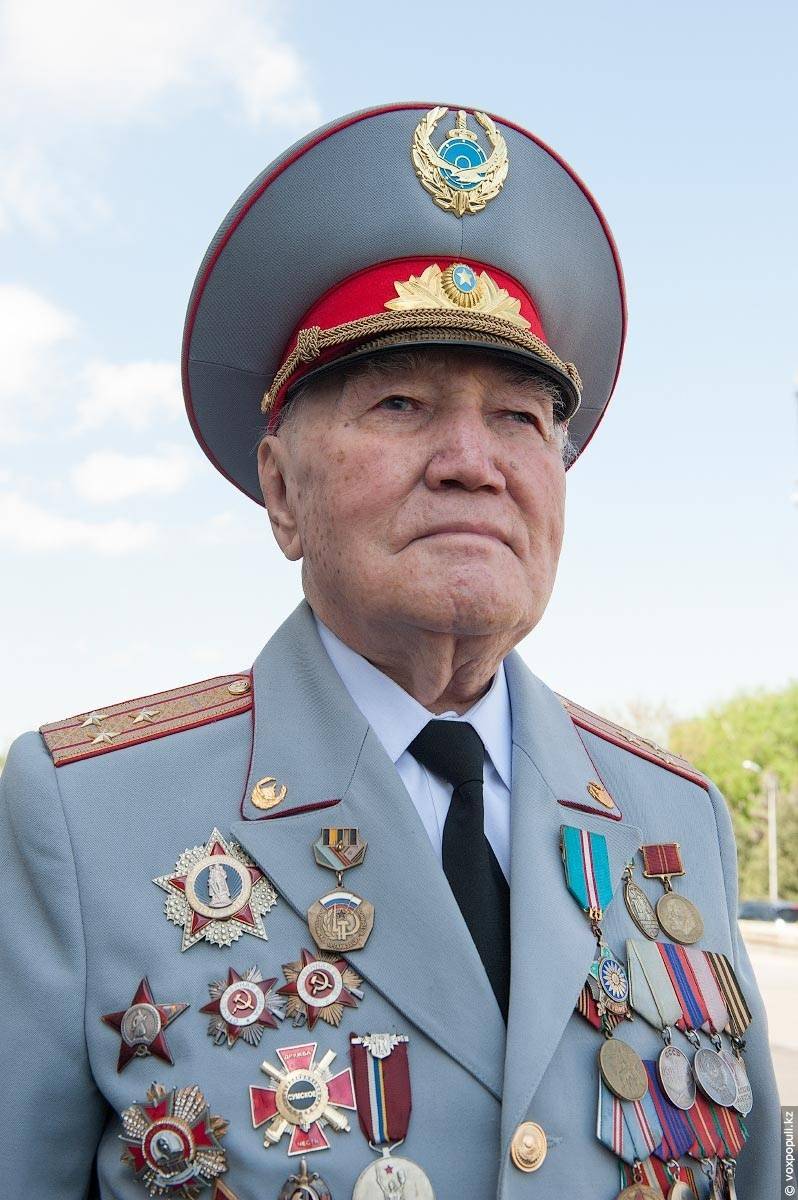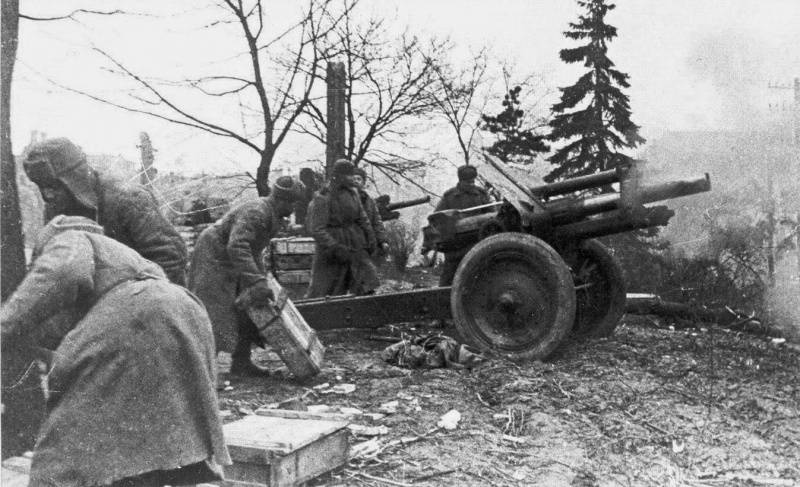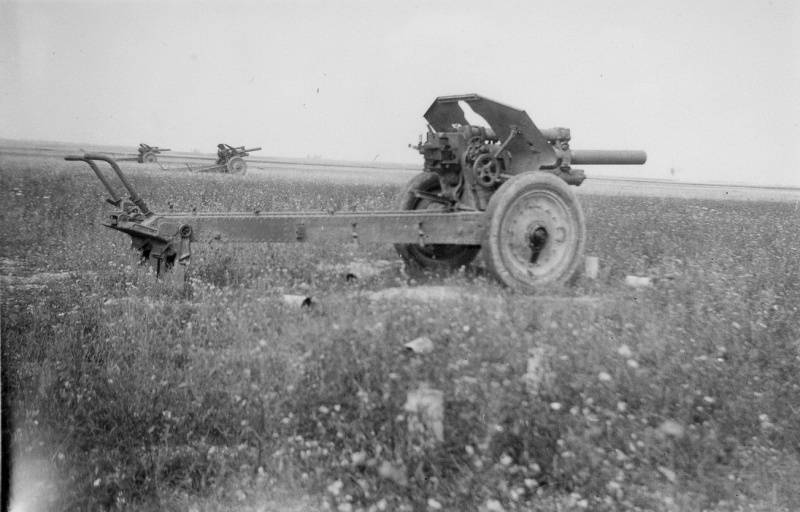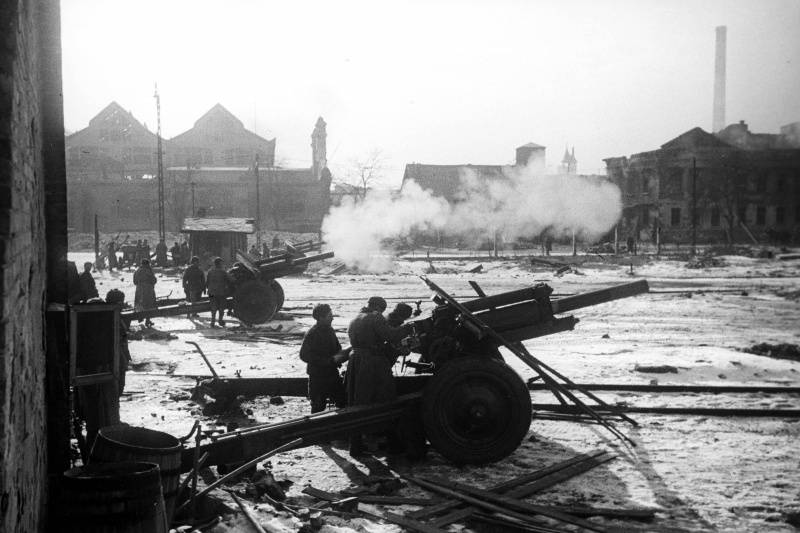Combat in 19 years. Part of 2

Outside Vitebsk, Oryngali assumed command of two more 122-mm howitzers. So he became a battalion commander in 19 years. Violent battles flared up near the city, which, unfortunately, led to the failure of the initial offensive of the Red Army, and the troops had to slowly retreat. The gunners had to take care of their guns from the raids of Hitler’s Focke-Wulf aircraft, which revealed the location of the guns and tried to destroy them with bombing strikes.
The Vitebsk offensive failed for several reasons. And Oryngali calls them in his book: firstly, the first was stretched along the front line tank Corps supporting the advancing infantry forces. Secondly, German battle formations were saturated with tiger tanks and Ferdinand self-propelled guns. The Tigers could hit Soviet T-1500 tanks from 34 meters, while our 76 mm cannons couldn’t reach German tanks at such a distance. Also as failures in his report, the chief of staff pointed to miscalculations on the part of the command of some units that made mistakes in preparing for the offensive. And only at the beginning of 1944 Vitebsk was released. There were only 118 civilians who miraculously survived on this earth.

Near Vitebsk Oryngali for the first time was wounded in the back. He received ten fragments, one in the foot. The largest fragment touched the spine. For a long time he could not feel either his arms or legs. And they took him on the sanitary train across the whole country: they drove through Moscow, Gorky, Arzamas. The high temperature began, and the doctors decided to remove the wounded from the sanitary train at the nearest station and place in the in-patient department. Until the end of his life, he remembered the address of his first hospital - Shatki station, Arzamas district.
A hospital was located in the high school building. Ormangali lay here for about three months. He was grateful to all the doctors and nurses who tore him out of the clawed hands of death and pain, bringing him to dressings, all plastered, patiently and with great kindness and skill, bandaged him, changed bloodstains, saved him from pressure sores. In this high school, where children once studied, he also learned to live again. In his body, near the shoulder blade, there was another fragment left unnoticed by the doctors; it remained for the rest of his life in his body, becoming another invisible scary monument to the war in a living body.
And Oryngali remembered for his whole life an Azeri, whose name was Askar - he had forgotten his last name, unfortunately great. Askar cared for the motionless Oryngali for a long day, helped him, as a nurse, could skillfully make an injection, straighten a blanket or a pillow. How many years have passed, and this is a front-line, male fraternity forever entered his heart. The heart of a nineteen year old boy who became an early man in a war. They quickly grew up there, in the war, forever saying goodbye to their carefree Kazakh childhood, which now surfaced in front of him only in misty delirium. And then he let go, relieved, and Oryngali began to come to his senses. He underwent another operation: a splinter was pulled out of his left leg - the wound was extremely deep, and he underwent a skin graft using the new method proposed by the doctor Olga Lepeshinskaya. After this operation, the wound was quickly tightened.
When Oryngali could walk well, it was time to say goodbye. Everybody cried. And nurses, doctors, and he. Because they clung to each other, became relatives and friends, their souls and hearts suffered something so huge, hard that it is difficult to call a test. It was, most likely, already a fraternal, native unity, which, unfortunately, is rarely found among ordinary life because there is no death edge that people walk around and slide into there, into oblivion instantly and quickly. And so those who managed to move away from this region, the more it became more free to live and with all the sensitivity and caution they listened to life and took care of it like no other.
So, it's time to say goodbye. Oryngali took one last look from the windows of the departing train at the places where he was torn out from the hands of death. He went to Moscow, to the Main Artillery Directorate of the Red Army with documents on disability. His right hand rested on a crutch, and in his left hand he held a cane.
It was in this form that he went down to the subway, where he collided with the senior lieutenant, who made a remark to him: “Why do not you give honor?”
- A crutch, or what? - answered Oryngali.
It is good that at this moment the train approached, and he entered inside to go to the Main Artillery Directorate. Sitting on the watch, I was already trying to salute, but the officers stopped him: “Wounded? Sit down, don't get up. ”
In the personnel service they decided to send him to a reserve regiment near Zvenigorod. “Gunners are needed. Experienced. Berlin is soon to storm. For now you will have medical treatment, ”they told him there.

Oryngali to the end of his life will be grateful to the personnel officer who taught him not to pay attention to his wounds. He taught, overcoming pain, clenching his teeth, to work for the good of his homeland. In the reserve regiment, Oryngali constantly trained his injured leg, limping, often approached the map, where operational data on the advancement of troops was indicated. And only then did he notice how tangible the advantage of the Soviet forces became. While still in the hospital, he kept asking: “Did ours take Vitebsk?” And, having received a negative answer, exhausted by physical and moral pain, he leaned back on pillows, clutching the edge of the sheet violently in his hands, forgot about pain, and when he came to himself again, he asked again about Vitebsk.
26 June 1944, the Vitebsk was taken. In the 2016 year, we, the descendants of these days and the heroes of the Great Patriotic War, will celebrate the 72 year from the day of the liberation of Vitebsk. But Oryngali and many other soldiers who have not even learned about the liberation of this city and our whole country will not be with us anymore. Many did not live up to Victory. But Oryngali lived and was able to leave behind a memory by writing a book. He went to immortality in April, before reaching the 71 anniversary of the celebration of the Great Victory, for which they and we all live.
And the service of Oryngali in the reserve regiment continued, but it was unbearable for him to stay here when his comrades were there, at the front and were there, on that map. And he seeks to be sent to the front, despite the wounded leg, which continued to hurt.
Together with another lieutenant, they traveled to the place of their new destination on the roof of a freight car, which the front-line soldiers then called "five hundred merry." So they got to Tula, where the headquarters of the 19 tank corps was located.
Here, Oryngali became the commander of the howitzer battery of the artillery battalion of the 1944 th infantry brigade in 26. Over the past few days — about six months — he could not overlook how well the corps units were armed. If earlier the guns had to be moved with the help of horse traction or on their hands, then today Studebakers could quickly carry the guns, and the calculations were placed in a closed body, provided with allowances and ammunition. This allowed us to quickly and quickly change the location of the battery, increased mobility and combat readiness of the parts. The upgraded cannon on the T-34, capable of penetrating any armor, self-propelled artillery installations SU-122, SAU IAS-122, IAS-152, new heavy tanks IС-2, could not please the military officer. Artillery became the god of war. Troop equipment has radically changed.
The 122-mm howitzer, native to Oryngali, is now being produced with an automatic projectile charging mechanism. The troops had 85-millimeter and 100-millimeter anti-tank guns, 160-millimeter mortars and powerful rocket launchers BM-31-12. During the attacks, 152-millimeter and 203-millimeter guns were also actively used.
The tactics of conducting artillery training, which by duration, sometimes, could take several days, hours or minutes, depending on the combat order, also changed.
Operation Bagration, during which Rokossovsky offered to deliver two main attacks at once, became one of the most powerful and significant, during which the intelligence, misinforming the German command, worked perfectly: it was fully confident that parts of the Soviet army would launch an offensive in northern Ukraine . During the liberation of Belarus, more than 2 soldiers were involved in four fronts, which, with the support of aviation (5 aircraft), artillery (300 guns and mortars), tanks and self-propelled guns (over 5) delivered several blows over 900 days, then closing in a ring that included 5 prisoners, who were then driven through the streets of Moscow.
From Vitebsk to Orsha, everything was completely dug up in trenches, multi-stage defense lines, the depth of which reached on certain sectors of the front to 10-12 kilometers. And then the artillery said its friendly word, causing irreparable damage to the enemy. As Oryngali later recalled, at first the artillerymen worked on the front edge, and then transferred the fire deep into the fortifications. “We then acted actively and decisively,” he writes in the book.

Perhaps the greatest difficulty was the installation of gun crews in wetland conditions, when, only a few centimeters apart, water was detected - the soil was swampy, loose. It was impossible to mount the gun on the hill due to poor camouflage: the German observers did not miss such a target.
And then the soldier's wits rescued: they dug the marshy land, which was then covered with wooden flooring, and the guns were necessarily masked from above with the help of logs or shrubs. The battalion commander carefully followed that his four 122-mm howitzers were located approximately 30 meters from each other. When they opened fire, water splashed out of the logs. But all the fighting was perceived differently: after all, the Soviet troops were advancing, and no one could prevent them from rushing to the west. Many soldiers who were injured refused to leave the location of their units and were treated here to keep up with their own and smash the enemy to the best of their abilities and capabilities. Even in the attack went with white armbands, taking as a reward that they are fighting for their homeland. The gunners under the command of Oryngali Esengaziyev opened fire each time when it was necessary to support the infantry, to hit numerous pillboxes and bunkers.
The fury added to our fighters the fact that almost at every step they saw the atrocities of the fascists and their accomplices: destroyed villages, suffering of the local population burned alive in a number of Belarusian villages, destroyed entire areas - all this filled with the desire to avenge and free their land as soon as possible from lute invaders.
Oryngali received an order to cross the Western Dvina and ensure the retention of the bridgehead in the area of its northern tributary. On the rafts they loaded two howitzers and under the cover of darkness, along with the infantry, crossed over to the opposite bank. The Germans threw tanks and infantry against them, opened heavy artillery fire. Our two guns fired direct fire at the advancing German tanks and infantry. The attack was repelled, and here comes the order: “Retreat! Immediately". In full ammunition, the fighters crossed the river back in the water. So did this reconnaissance in force, the main task of which was to identify the German grouping, which then began to be followed by intensified artillery work on our part. Thus, it was possible to avoid losses on our part. And the Germans retreated, leaving our troops a springboard from which the offensive continued.
By the beginning of August all the Polish lands were free. Troops moved west. An order was issued to prepare for an attack on Memele (Klaipeda), where a significant German grouping concentrated in the seaport area.
The ending should ...
Information